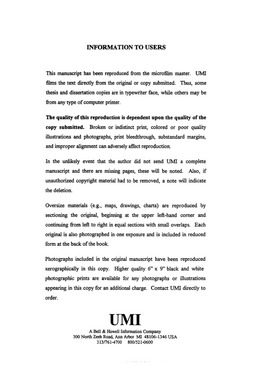| dc.contributor.author | Mason, Walter Dale. | en_US |
| dc.date.accessioned | 2013-08-16T12:29:30Z | |
| dc.date.available | 2013-08-16T12:29:30Z | |
| dc.date.issued | 1997 | en_US |
| dc.identifier.uri | https://hdl.handle.net/11244/5419 | |
| dc.description.abstract | This dissertation seeks to answer the question, "What is the status of Indian tribes in the American political system at the end of the twentieth century" by studying how New Mexico and Oklahoma tribes have attempted to protect their gaming interests. The findings indicate that this status is unique in theory and vulnerable in practice. Tribal governments have commonly understood attributes of both sovereigns and interest groups. Their vulnerability is apparent when certain conditions occur, including the political Zeitgeist. | en_US |
| dc.format.extent | xiii, 424 leaves ; | en_US |
| dc.subject | Indians of North America Gambling. | en_US |
| dc.subject | Indians of North America Legal status, laws, etc. | en_US |
| dc.subject | Sociology, Ethnic and Racial Studies. | en_US |
| dc.subject | Gambling on Indian reservations. | en_US |
| dc.subject | American Studies. | en_US |
| dc.subject | Indians of North America Government relations. | en_US |
| dc.subject | Political Science, General. | en_US |
| dc.subject | Recreation. | en_US |
| dc.title | Interest group federalism: Indian gaming and the status of Indian tribes in the American political system. | en_US |
| dc.type | Thesis | en_US |
| dc.thesis.degree | Ph.D. | en_US |
| dc.thesis.degreeDiscipline | Department of Political Science | en_US |
| dc.note | Source: Dissertation Abstracts International, Volume: 57-11, Section: A, page: 4916. | en_US |
| ou.identifier | (UMI)AAI9712668 | en_US |
| ou.group | College of Arts and Sciences::Department of Political Science | |
